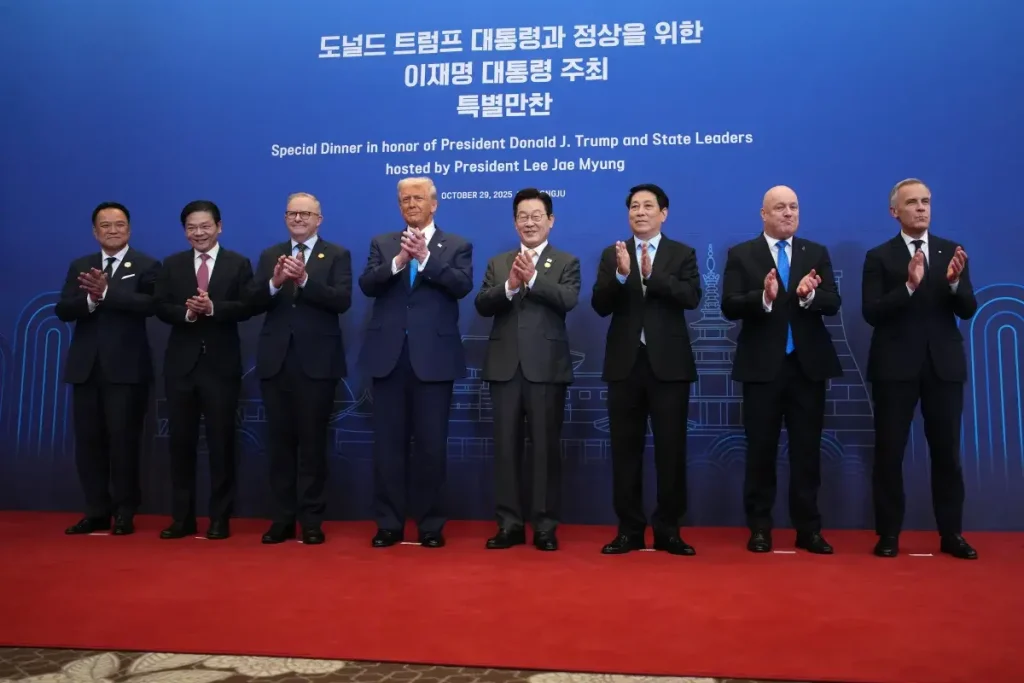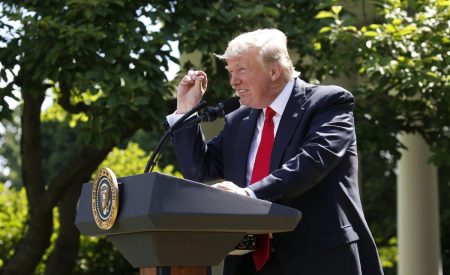Trump Urges Republicans to End Filibuster Amid Government Shutdown
In a dramatic call to action, former President Donald Trump has urged Republican lawmakers to eliminate the Senate filibuster rule to break the current government shutdown impasse. This suggestion, made via his Truth Social platform following his Asia tour, represents a significant shift in traditional Republican stance on this longstanding Senate procedure.
The filibuster has historically served as a crucial check on power in the U.S. Senate, requiring a 60-vote supermajority to end debate and move forward with legislation. This procedural mechanism has been defended by both parties at different times as a tool that necessitates bipartisan cooperation and prevents a slim majority from dominating the legislative agenda. Trump’s call to end it—referring to this as the “Nuclear Option”—would fundamentally alter how the Senate functions and could have far-reaching consequences for American governance. While this would temporarily give Republicans increased power to pass their preferred funding measures, many Senate Republicans remain concerned that such a rule change would inevitably benefit Democrats when political fortunes shift in the future.
In his social media post, Trump recounted conversations during his recent international travels where he faced questions about how “Democrats SHUT DOWN the United States of America, and why did the powerful Republicans allow them to do it?” He praised Senate Majority Leader John Thune and House Speaker Mike Johnson for doing a “GREAT job” while characterizing Democrats as “Crazed Lunatics that have lost all sense of WISDOM and REALITY.” This rhetoric highlights the intensely partisan nature of the current shutdown debate, with Trump framing the situation as one where Democrats are making unreasonable demands that “will hurt American citizens,” and Republicans are standing firm against such provisions.
What makes Trump’s position particularly notable is the political role reversal it represents. During President Biden’s administration, many progressive Democrats advocated eliminating the filibuster to advance their legislative agenda on voting rights and other priorities. Biden himself resisted these calls, expressing commitment to bipartisan governance. Key moderate Democratic Senators Joe Manchin and Kyrsten Sinema (now an Independent) similarly blocked efforts to change the rule. Trump acknowledged this history in his post, stating that “Never have the Democrats fought so hard to do something because they knew the tremendous strength that terminating the Filibuster would give them… Now I want to do it in order to take advantage of the Democrats.” This blunt admission reveals the tactical nature of his suggestion rather than a principled stance on Senate procedure.
The current government shutdown has placed significant pressure on lawmakers from both parties, with essential government services disrupted and federal workers furloughed or working without pay. Trump’s intervention suggests an impatience with traditional legislative processes and a preference for more direct action, even if it means dismantling institutional safeguards that Republicans have traditionally defended. His call comes at a time of heightened political tensions as the country approaches the 2024 presidential election, with both parties positioning themselves as defenders of American interests while portraying opponents as obstructionists.
Despite Trump’s forceful recommendation, Senate Republican leadership has thus far rejected the idea of changing the filibuster rules. They maintain a longer-term perspective that acknowledges the cyclical nature of American politics—what benefits their party today could empower Democrats tomorrow. This resistance illustrates the tension between Trump’s action-oriented approach and the more institutionalist tendencies of some congressional Republicans. As the shutdown continues, the pressure to find a resolution will only increase, testing both parties’ resolve and potentially forcing compromises that neither side initially wanted to make. Whether this includes fundamental changes to Senate procedure remains to be seen, but Trump’s advocacy has certainly pushed the conversation in that direction.














